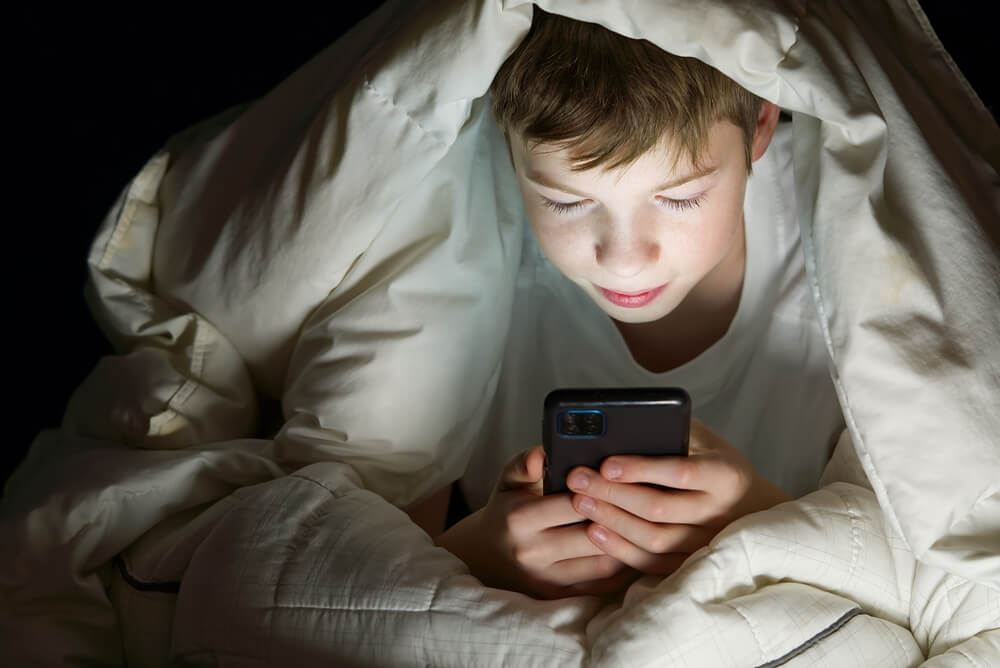The Impact of Devices on Kids: How to Break Free from Phone Addiction

Numerous studies have shown that gadgets can have a negative effect on our kids’ health and well-being. Researchers have looked at the relationship between time spent on gadgets and physical and mental well-being:
- Kids who used their devices for more than an hour experienced fatigue, poor concentration, and distractibility.
- Those who spent over 4 hours a day on their devices were more likely to suffer from depression, severe mood swings, and other emotional issues. Close to 2/3s of children use their smartphones for 4+ hours daily.
However, when it comes to a kid’s “device addiction,” it’s not just about the time spent on devices. Emotional and social factors also play an important role.
Device addiction is the uncontrollable use of devices, which negatively affects both mental and physical health.
Signs of Device Addiction
Here are some common signs that your kid may be struggling with device addiction:
- Good mood with smartphone, bad mood without: They are happy while using their device but experience withdrawal or irritability when it’s taken away.
- Lost sense of time: Your kid can’t monitor or control how long they spend on their devices, even when reminded.
- Ignoring rules: They frequently break time limits and don’t respond to your requests, often getting angry when you intervene.
- Spending money: Teens may spend money on games or online purchases, both real and virtual.
- Difficulty switching tasks: After using gadgets, they struggle to move on to other activities and lose interest in non-digital tasks.
- Irritability after use: They may become aggressive or irritated after time spent on their device.
- Lack of interest in real life: They show little interest in offline events like friends, school, or family matters.
- Physical effects: like neck aches, headaches, and eye strain.
How to Help Your Kid Overcome Device Addiction

InFocus.ee/Shutterstock.com
1. Open dialogue and expressing emotions
Remember that kids often turn to their devices as a way to escape from real-world worries. When you come home from work, avoid bombarding your kid with questions, especially ones they find stressful. Instead, lead by example—share your own feelings, particularly when you’re feeling down, and encourage open conversation. It may take time, but as you model this behavior, your kid will eventually start to share their thoughts too.
2. Find offline alternatives
Replace phone and computer time with exciting offline activities. Encourage your kid to spend time on hobbies or interests that will keep them engaged. This will naturally reduce the hours spent on screens.
3. Set time limits
Experts agree that completely banning devices is unrealistic, but limiting screen time is essential. Work with your kid to agree on reasonable time limits, rather than simply imposing them.
Tools like the Phone usage section and Block apps feature in the Findmykids app can help track and enforce these limits.
4. No multitasking with gadgets
Meals, chores, and studying should be separate from screen time. Set an example by following this rule yourself, and come to an agreement with your kid to do the same.
5. Be a role model
How much time do you spend with a screen? Parents often say things like, “I’m working on something important” or “I’m studying,” but this can come across as unfair to kids, who also feel like what they’re doing is important to them. If you expect your kid to limit screen time, you need to set the example. Once they see you doing it, they’ll be more likely to follow your lead.
References
- Association between smartphone usage and health outcomes of adolescents: A propensity analysis using the Korea youth risk behavior survey https://journals.plos.org/plosone/article?id=10.1371/journal.pone.0294553
- Poulain T, Vogel M, Kliesener T, Kiess W. Associations between changes in behavioral difficulties and levels of problematic smartphone use in adolescents over a 1-year period. European Child & Adolescent Psychiatry. 2021 https://pubmed.ncbi.nlm.nih.gov/34546407/
- Emotional and Behavioural Factors Predisposing to Internet Addiction: The Smartphone Distraction among Italian High School Students https://pubmed.ncbi.nlm.nih.gov/38673299/
- Smartphone use and addiction during the coronavirus disease 2019 (COVID-19) pandemic: cohort study on 184 Italian children and adolescents https://ijponline.biomedcentral.com/articles/10.1186/s13052-021-01102-8
Cover image: Iren_Geo/Shutterstock.com
Проверьте электронный ящик



















